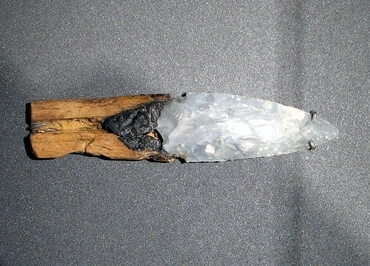Joel 1:4
To many Protestant and Evangelical Italians, the Bibles translated by Giovanni Diodati are an important part of their history. Diodati’s first Italian Bible edition was printed in 1607, and his second in 1641. He died in 1649. Throughout the 1800s two editions of Diodati’s text were printed by the British Foreign Bible Society. This is the more recent 1894 edition, translated by Claudiana.
Flint

Stones in general represent true ideas. Flint is a kind of stone that can be chipped to form extremely sharp edges. To keep the metaphor going we would want flint to be truth that "comes to a point", and in a way that's exactly what it is. According to the Writings, flint represents the "truths of faith" the rules we learn about how to be good people and serve others so that we can apply them as they arise in life. These are relatively black-and-white concepts ("Thou shalt not murder") that help us identify evil desires and arm ourselves against them. This is why flint knives were (and in some cases still are) used for circumcision, which represents purification from our most base love of self and love of the world -- something that must be accomplished by truths of faith.






